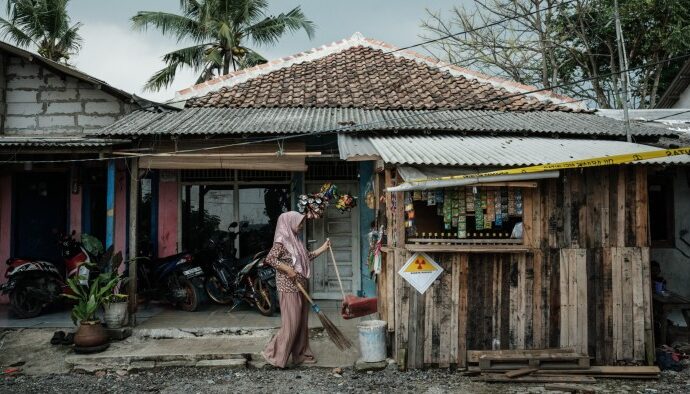Unlock the Editor’s Digest for free
Roula Khalaf, Editor of the FT, selects her favourite stories in this weekly newsletter.
Volkswagen has said it can produce an electric vehicle entirely made in China for half the cost of doing so elsewhere, as the German automaker fights to reclaim its share in the world’s biggest market.
Europe’s largest carmaker said on Tuesday that, following a series of investments in the country, it can for the first time develop new cars outside Germany, including testing and deploying new technologies such as assisted driving.
VW is preparing to release about 30 EV models in China over the next five years, in a bet on localised research and development. The carmaker said that, compared with the 2023 production costs for EVs in Germany, the cost for some models in China had been reduced by as much as 50 per cent due to supply chain efficiencies, including battery procurement, shorter development periods and lower labour costs.
The German group has invested billions in its innovation centre in Hefei, eastern China, where it has more than 100 advanced laboratories for testing software and hardware, alongside batteries and EV powertrains.
Thomas Ulbrich, chief technology officer of Volkswagen’s China operations, said the new research and development facility gives the group’s engineering teams “an entirely new level of integration”.
He added: “We can now run software, hardware, and full-vehicle validation processes in parallel, shorten decision loops, and bring innovations to maturity much faster.”
VW said the development cycle for its new China EVs has been shortened by 30 per cent, compared with the traditional process, which takes around 50 months.
The carmaker initially described its strategy as “in China, for China”. However, the group is in discussions about increasing exports of Chinese-made cars as well as applying China breakthroughs throughout its global operations, said executives.
VW is among a clutch of European carmakers attempting to replicate the speed of vehicle development in China by hiring local engineers, collaborating with partners there and by tearing down vehicles made by BYD and other newer rivals.
Renault has set ambitious goals to roll out dozens of models that will be developed in less than two years by using fewer components and technologies such as artificial intelligence. Its Dacia minicar, which will be launched next year and produced at its plant in Slovenia, promises a development speed of 16 months, a record for western brands.
VW was for many years the biggest carmaker in China but it has lost market share as a wave of innovative Chinese EV rivals has won over consumers.
While the German group still has about 20 per cent market share for cars with internal combustion engines, it does not rank among the top 10 pure battery and plug-in hybrid car producers in China, according to data from Shanghai consultancy Automobility.
But the company stands apart from other western carmakers for its serious effort to survive in China as the market share there of foreign carmakers has collapsed.
Since late 2022, VW has ploughed almost €4bn into China in its efforts to remain competitive during the country’s rapid transition to electric vehicles.
The investments included building the Hefei innovation centre, pouring money into Horizon Robotics, a Beijing-headquartered group with expertise in chip design and software for advanced driver assistance systems, as well as forming a partnership with local EV challenger Xpeng. The company this month announced it is developing an AI chip with Horizon for autonomous driving capabilities in China.
VW’s investments in China contrast with its sweeping job cuts at its German plants, where production costs are higher. Under a deal agreed with unions last year, the carmaker plans to reduce the headcount at its domestic factories by 35,000 by 2030, as a result of weak auto demand in Europe.


